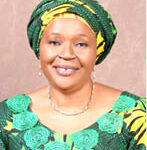The Vice-Chancellor of the Federal University of Petroleum Resources Effurun (FUPRE), Professor Akpofure Rim-Rukeh has urged those in the private sector to support tertiary institutions in raising funds for their development.
The Vice-Chancellor who spoke to journalists in Abuja ahead of the FUPRE’s planned education development roundtable said government’s funding alone is not sufficient to enable adequate infrastructure and optimal performance of universities, especially specialized ones.
- Abductors of ex-Gov Dariye’s father arrested in Plateau
- Testing, isolation centres shut in states despite imminent COVID-19 third wave
Prof. Rim-Rukeh explained that the educational sustainability and progress of universities is threatened by sole dependence on the federal government which would not allow for the realization of objectives geared towards their contribution to Nigeria’s economy.
“We are now saying that for the nation’s education to be sustainable, let’s get the private sector to be involved. The development and direction of the universities is also being threatened by a wide gap between the industry and the universities,” he said.
He stated that in advanced societies, every research in the university is driven from the industry, thus, the need for synergy between the two.
He added that the roundtable billed for July 27, 2021, has the theme; improved institutional donations and endowment: a positive step towards advancement in technology and sustainable development in education, and is targeted at bringing industry experts and investors to help bridge the gap between universities and the industry.
“The basic purpose of the FUPRE roundtable is to solicit the support of the private sector for the development of the university. One of our objectives is to be able to explore all business opportunities with regard to the commercialization of the university’s patent products. When we commercialize, both the investor and the university have a certain percentage. These are clearly stated in the university intellectual property policy.”

 Join Daily Trust WhatsApp Community For Quick Access To News and Happenings Around You.
Join Daily Trust WhatsApp Community For Quick Access To News and Happenings Around You.


